#Above the line
Text
Blatantly Partisan Party Reviews: 2022 Victorian State Edition
Victoria goes to the polls on 26 November and there is a record number of candidates for both houses of the state parliament, so here I am to review the assortment of micro-parties crowding the ballot.
I reviewed the 2014 and 2018 state elections, and although I no longer live in Victoria, I think of Melbourne as home and some of this year’s micros are truly cooked, so I could not resist firing up the blog.
There is another reason I am keen to write these reviews. Victoria still uses anti-democratic Group Ticket Voting (GTV) above the line for the Legislative Council (upper house). To ensure your preferences go where you want them to go, you must vote below the line.
What is Group Ticket Voting? It is where a party registers its list of preferences—their “group ticket”. If you vote above the line on the big Legislative Council ballot, your preferences are distributed as per the group ticket of the party for which you voted 1. Unlike when voting for the Senate, any other preferences you mark above the line will be ignored.
This does not, and cannot, represent the will of voters. GTV means that 100% of preferences flow in the same direction; in reality, when people distribute their own preferences, even the most disciplined and organised campaign struggles to get more than 80% of voters for one party to nominate the same second preference, never mind third or subsequent preferences. GTV turns each election for the upper house into a lottery, and it doesn’t confer much long-term benefit upon the micro-parties that it elects either because, even if they gain supporters during their term, they find it very difficult to draw a winning ticket two elections in a row.
Moreover, few parties submit GTVs that are based on ideology alone and can be assumed to reflect the typical preferences of their voters. Most parties do deals with each other for favourable preferences. A party that arranges especially good deals can snag preferences from voters across the spectrum—almost all of whom do not know their preference is going there, nor would approve of it. This allows a party to snowball their way past rivals with much greater support to win a seat. A party with, say, 9% of the vote in one region can miss out on a seat to a party with only 2% because that latter party harvested preferences effectively. If you want to read more about this abysmal system, Antony Green and Ben Raue have both gone into detail. Victoria's GTVs were released yesterday, and Ben has written a piece today explaining the general trends that emerge from them.
At federal level, and in every other state, GTV has been abolished and better systems implemented that give voters control over their preferences. Every federal election since 2016 has been run under a system where voters specify their own preferences above the line. Western Australia ran the most recent state election with GTVs: last year, the Daylight Saving Party won a Legislative Council seat for Mining & Pastoral despite polling a grand total of 98 primary votes in that region. This absurdity prompted WA to abolish the system. Victoria’s parliament, however, has clung to GTV despite having plenty of opportunity for reform. This failure should shame the parliament and its politicians—and Kevin Bonham is doing his best to do so in his summary of party policies about GTV.
There is a simple way to avoid your preferences going on a magical mystery tour and potentially electing parties you dislike: VOTE BELOW THE LINE. This is extremely easy: you just need to give at least 5 preferences to individuals below the line. Any vote with fewer preferences below the line is not counted; you must preference at least 1–5. You can then give as many more preferences as you want. If you only want to give 5, give 5. If you want to preference everybody, preference everybody. It is entirely up to you and your vote will only go to the individuals to whom you allocate preferences, in the order you allocated them. Do not repeat or skip a number. If you stop preferencing at any point after 5, your vote exhausts at that point and plays no further part in the election. I encourage you to preference as far as possible because it maximises the power of your vote.
Group Ticket Voting only applies for the Legislative Council (the upper house, which is the house of review) on its big ballot with the thick line. There is no Group Ticket Voting for the Legislative Assembly (the lower house, where government is formed), and when voting for the Assembly you must number all squares without repeating or skipping a number.
My first reviews will be posted later today. They reflect my own biases as a green democratic socialist. I am not, nor have I ever been, a member of any political party. As per usual, I will not review Labor, the Liberal/National coalition, or the Greens, because the sort of person interested in these reviews likely already has established opinions about those parties. I don’t review One Nation federally but I might tack them on at the end this year if I have the time. I am aiming to review every other party. Let’s go!
Every review will end with my recommendation of how favourably to preference a party. This is the recommendation system I will be using:
Good preference: a party with a positive overall platform that has few or no significant flaws for the left-wing voter.
Decent preference: a party with a generally positive overall platform but some reservations; or, a single-issue party with a good objective but by definition too limited in their scope to encompass the fullness of parliamentary business.
Middling preference: a party with a balance of positive and negative qualities, or a party with a decent platform undermined by a notably terrible policy or characteristic.
Weak or no preference: a party with more negatives than positives. In the Legislative Assembly, you must number all squares, and these parties should receive as bad a preference as possible. In the Legislative Council, you should vote below the line and either give this party a poor preference or let your vote exhaust before reaching it. I recommend preferencing fully, but you may wish to stop rather than express preferences between varying gradations of undesirability.
This schema is flexible; I may, for instance, suggest a “middling to decent preference”.
#auspol#vicvotes#vicvotes22#vicvotes2022#springst#Victorian election#Victoria#Election 2022#Melbourne#voting#vote below the line#below the line#above the line#group ticket voting#group voting tickets#gtv#gvt
18 notes
·
View notes
Text
How To Get Rid Of Negative Energy (Part 2) - Positive Reflection Of The Week
Harnessing The Elements: Fire & Air Techniques For Energy Clearing
FIRE-BASED TECHNIQUES
Fire is sometimes an effective clearing ally. As with water, you can use fire in your energy-cleansing practises by using candles, burning objects yourself, and using visualization. It can be dangerous because it is so strong, so always, always use common sense and caution.
You’ve probably seen people write…

View On WordPress
#2023#Above the Line#air-based techniques#Alia Datoo#alignment#Awareness exercise#be grateful#be happy#Below the Line#breath work#burning rituals#Calmness amid chaos#candle-work#chakra#chakra balancing#chakra cleansing#chakra healing#chakra meditation#chakras#Challenges of daily life#choice#clarity#compassion#cones#conscious choices#Consistent growth#Coronavirus#COVID-19#desires#Development and learning
0 notes
Text
i have lots of flaws but i do at least take a fair amount of comfort knowing that, if i were a customer NPC in a fast food/retail management game, i would be one of the chill early-level ones that can wait a super long time before they start getting impatient, and you breathe a sigh of a relief when you see them show up in a harder level
#buny text#was standing in line at popeyes today and they were SUPER busy and the staff couldn't even take my order for a while#and the guy at the till was like 'so sorry for the wait we'll get to you soon i promise' and i was like hey no worries 👍#and he gave me this look that i understood from my own time in retail to mean 'thank you for being fucking normal'#there was nobody else behind me cuz i showed up at the very end of the lunch rush i think#and in that moment i just pictured like. a lil timer wheel above my head that was still green and mostly full lmao#i love being nice to retail workers it's so fun
8K notes
·
View notes
Text
Why Ben Affleck Must Wipe His Hands Clean of the DCU If He Truly Wants to Return to the Glory Days of Argo
By : Jamie Williams
March 1, 2023
“And it doesn’t matter, uh, how you get knocked down in life. Because that’s gonna happen. All that matters is that you gotta get up. Violet, Sam, and Sara, I love you! This is for you!”
That was Ben Affleck, holding back tears, as he accepted the Academy Award for Best Picture for Argo a decade ago on Feb. 24, 2013 — a night that capped off the single-greatest career comeback in Hollywood history.
A decade before that, Affleck was the butt of jokes across the industry, thanks single-handedly to Gigli and the fallout stemming from that infamous 2003 bomb, which basically killed his planned marriage to Jennifer Lopez (don’t worry, it ended up working out for them 20 years later) and nearly killed his career.
That period marked a low point for Affleck, but 10 years later, he had climbed his way back to the top of the mountain and stood in front of his peers — and millions of people watching around the world — as the hottest director in town. As he beamed with pride standing beside fellow Argo producers George Clooney and Grant Heslov, the world was his oyster, and one could only imagine where his career would go next.
But that very moment proved to be his peak. A combination of hard knocks in Affleck’s much-publicized personal life — which we aren’t going to get into here — and the critical and commercial disaster of his pet project Live by Night — the Prohibition-era crime drama that served as his follow-up to Argo — hit Affleck hard. So hard that it scared him away from directing altogether.
Maybe it was self-doubt stemming from whether he’d ever be able to live up to the glory days of Gone Baby Gone, The Town, and especially Argo. Maybe his own personal demons — Affleck has famously struggled with alcoholism — were simply too strong to shake. Maybe he felt everything was just slipping away. We don’t know.
But if Affleck was ever going to return behind the camera and remind the world what he’s capable of as a director, he had to go on his own journey inward in order to find both himself and creative inspiration. That journey appears to have culminated with Air, the forthcoming drama about the making of Nike’s iconic Air Jordan shoe, which sees Affleck reteam with his old pal Matt Damon. And after watching the trailer, it sure seems like Affleck has rediscovered that fire in his belly that put him back on top a decade ago.
Like Argo, Affleck’s latest film is another “true to life” drama that is lightly fictionalized by screenwriterAlex Convery, whose script was on the 2021 Black List, just as Chris Terrio‘s nail-biting script for Argowas on the 2010 Black List before going on to win the Oscar for Best Adapted Screenplay.
I saw Argo with my brother, Dwight, the week after the film opened, and it was one of the greatest moviegoing experiences of my life. Every choice that Affleck made was the right choice. Argo is the kind of masterwork a director is lucky to make once in a lifetime. I’ve already promised Dwight that I won’t see Air without him, as the trailer gives me a similar feeling.
It’s a feeling that Affleck himself is said to share, as our very own Jeff Sneider reported on a recent episode of The Hot Mic podcast. Sneider said that Air has been finished since last November and that Affleck was so high on the film that he pushed for Amazon to release the film in theaters in December and give it a last-minute Oscar push, sensing a weak Best Picture field. Amazon vetoed that, as the studio was planning a robust theatrical release given its high commercial hopes for Air — hopes that it didn’t want to see dashed by the December release of box office juggernaut Avatar: The Way of Water, which would surely have eaten it alive.
I’ve heard good things about Air and would love to see Affleck making more movies like it, so I’m nervous when I’m reminded of the fact that he has already sat down with DC Studios’ dynamic duo James Gunn and Peter Safran to discuss the possibility of directing a project for them. There have been plenty of murmurs and whispers about what said project might be, but the rumor I’ve heard was that Affleck was planning to direct The Brave & the Bold.
Moving fully behind the camera and casting his own successor — if one doesn’t count The Batman star Robert Pattinson and the returning (albeit for only one film now) Michael Keaton — in the cinematic universe he previously headlined is such a strange concept. One of those “so strange, it must be true” ideas, perhaps? Assuming it is true.
As I’ve stated previously, Gunn is more than welcome to say I’m totally wrong here. I would consider it an honor to be “called out” by him. No hard feelings whatsoever!
But that’s not the point here. This isn’t about Affleck doing The Brave & the Bold. It’s about him avoiding it.
Surely, one understands the appeal from Gunn and Safran’s perspective. It’s not so much about working hand-in-hand with Ben Affleck, the previous custodian of the Batman mythos onscreen, as it is working with Ben Affleck, the two-time Academy Award-winning filmmaker. They want to see what that guy brings to the table!
But personally, I don’t see what Affleck would get out of this. Yes, he’s flirted with blockbusters before — directorially speaking — having been up for Man of Steel and Star Wars: The Force Awakens. And he is a noted genre fan. For example, in the closing scenes of Argo, the bedroom of Tony Mendez‘s little boy — full of comic books, video games, and Star Trek and Star Wars action figures — was modeled after Affleck’s very own bedroom growing up, as he was the exact same age in 1980.
I suppose, given Affleck’s choices as a director, that The Brave & the Bold would present him with some new challenges and give him a chance to work with new tools and toys. So in that sense, sure, I get it.
But regardless of whatever this DCU project is — whether it’s The Brave & the Bold or something else entirely, and that’s if it even happens — the fact is that if Air is as good as I suspect, then Affleck will be too good for the DCU, and I mean that with all due respect to what Gunn and Safran are building. Not only that, but Affleck just plain doesn’t need to make a comic book movie at this stage of his career, let alone his life.
It’s not that Affleck wouldn’t give the DCU 110 percent, but his heart and soul clearly belong in adult dramas like Argo and Air. After all, that’s the whole reason that he and Damon started a new production company, Artists Equity, which, as reported by the New York Times, has lined up $100 million to finance those kinds of mid-budget movies.
The old “One for them, one for me” model — which Affleck himself was a longtime proponent of during his movie star heyday in the late ’90s/early 2000s — is no longer a workable model in today’s environment where studios are making fewer and fewer films, and the ones they do make are mega-budget popcorn movies. Thankfully, those smaller, more intimate character dramas are still being made by the likes of Amazon, Apple, and Netflix, though their commitment to theatrical is questionable. Indeed, though Air may be receiving an unprecedented wide release from Amazon, will other films without Damon and Affleck be so lucky? That’s why we need Affleck making more of those kinds of movies — to help ensure that they’ll continue being made in the future.
Again this isn’t meant to throw shade at any parties. But Affleck can’t definitively put the cape-and-cowl behind him if he’s still playing in the DCU waters, even if it’s strictly from behind the camera. It’s in Affleck’s best interest, and likely our own as movie fans, for him to leave his time in the DCEU (now the DCU) behind him so he can focus on being the truly great director we all know he was before, and judging by the Air trailer, can be again.
0 notes
Text
How much 'management' do people need?
How much ‘management’ do people need?
Well, maybe the question should be “want” rather than ‘need’ given that the answer to the question is heavily dependant on who you ask.
I have had sufficient conversations that lead me to suggest that the last two and a half years of disruption have led people to draw their own conclusions.
Now that so many workers are operating in a hybrid state, I think it is much clearer as to what amount…
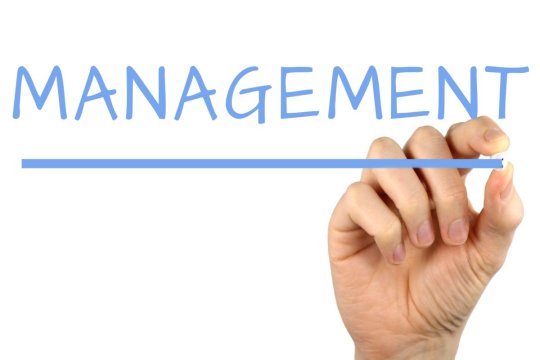
View On WordPress
0 notes
Text

Source - naruevernett
#gay furry#gay furry pecs#gay furry bulge#gay furry pits#gay furry cheetah#gay furry wolf#artists twitter above#wrestler furries always have a front of the line pass to my hole and mouth#if you ever wanna flirt with me (and im in the mood for it) wrestle me down to rhe ground and stuff your crotch in my face#honestly hold me down in your pits and pin me for the 3 count i will NOT be kicking out
1K notes
·
View notes
Text
there was his angel, wrapped tightly around him.
from chapter 2 of death wish by @remedyturtles
Ben Harper - Waiting On An Angel
я завершила перевод «Я может, и не видим...»! вау. вау. я очень хочу радоваться сильнее, но слишком устала.
плюс вот вам еще парочка фиков из серии «желания умереть».
#rottmnt#rise of the tmnt#riseofthetmnt#rottmnt leo#rise leo#rottmnt mikey#rise mikey#soundtrack in house md be damned#i heard this song and was like well that's a sign from above#because that little line clenched my heart and didn't let go#too tired#my art#my animation#my translations#перевод на русский
424 notes
·
View notes
Text
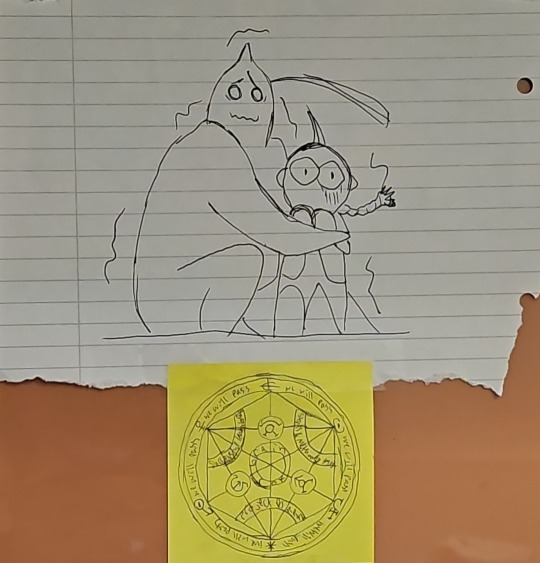
Some budget alchemy, in the hopes Truth would exchange enough knowledge for exams
#this hung above my head all throughout#truth probably laughed at those shaky lines#this just enhanced my fixation#it worked though??#i cant escape fma#“we will pass”#fma#fmab#fma brotherhood#fullmetal alchemist brotherhood#fullmetal alchemist#psychology#exams
320 notes
·
View notes
Text
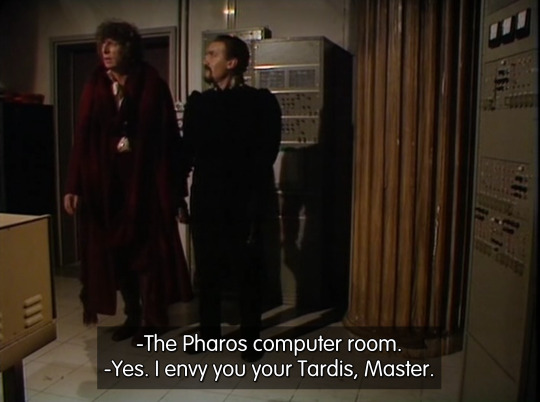
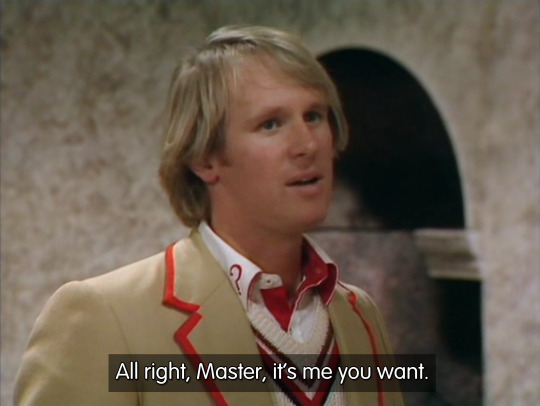
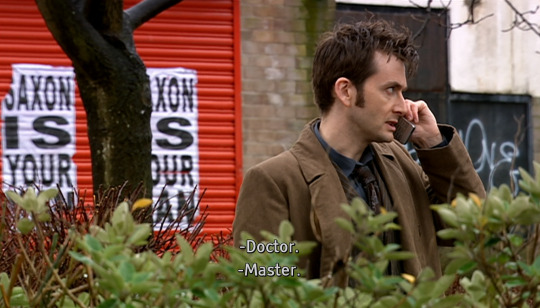
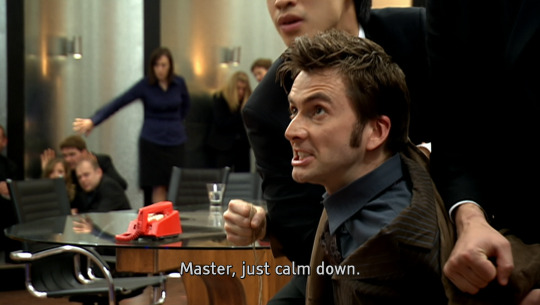
hello. did you know these are the only times the doctor ever called him “master” to his face without prompting. in the whole entire show
#and even if you add prompting its only 2 more scenes!#(technically there's one more line from five in the same scene as above but he's off-screen so. you get the gist.)#the fact that three never did is soooooo. i mean it makes sense. but it's also crazy.#the closest three got was introducing him to sarah jane in the five doctors#“he likes to be called the master. don’t you?”#like he knows he enjoys it so he's deliberately not saying it. withholding it. like a treat.#doctor x master#dw
609 notes
·
View notes
Text





Vicious August 1998
#I know!#a rare post of old visual kei stuff from me!#the context for this is that on one of my trips after COVID-19#I tried to find a substitute store for Trio2 which had shut down in Nakano Broadway#I had read that there were some magazine shops at least in Ochanomizu#I didn't have data and tried to navigate with my geolocation skills but ended up asking a sort of old officer just to be sure#he said something along the lines of 'but I'm just an old man...'#so a younger man came to his and my rescue and offered to help me#he understood little English and used Google Translate to communicate with me for the most#turned out he was a magazine enthusiast himself and he took me to a couple of stores#they all had only antique magazines like nothing past 2005#he found everything that had Dir en grey at each of those stores#I felt bad after a while because it was not at all what I was looking for#so I ended up buying the Xth magazine that he showed me#see above hah#just so you know I was really close to the store just with my skills#Dir en grey#young#scans#magazine#visual kei#vkei#Kyo#Kaoru#Die#Shinya#Toshiya#makeup#I'm not sure why I'm such a fan of that middle finger nail paint
468 notes
·
View notes
Text
Index to the Blatantly Partisan Party Reviews, 2022 federal edition
Tomorrow, 21 May, is election day. If you are unsure who all these parties are on your ballot, I’m here for you. I’ve reviewed all parties registered with the Australian Electoral Commission except for the most widely known ones: Labor, Greens, One Nation, and the Liberal/National coalition parties. I have also reviewed all independent candidates in Western Australia and a selection of others from around the country, including a number who represent unregistered parties.
You will get two ballots. The smaller green one is for the House of Representatives, the lower house; whichever party/ies command a majority on the floor of the House forms government. You must number EVERY SQUARE on the small green ballot for the House. Ignore the “no preference” in the recommendations below; that applies only to the Senate.Many seats have independent candidates; make sure you look into them as they vary substantially in their platforms and competence. View your candidates here.
The larger white ballot is for the Senate, the upper house. This is the house of review. We are voting for roughly half the Senate, as state senators serve six-year terms. This means each state elects six senators, requiring 14.3% of the vote to be elected; each territory elects just two (who serve terms aligned with the House), requiring 33.3% of the vote to be elected. On the Senate ballot you can vote above the line for PARTIES or below the line for INDIVIDUALS. Above the line you must give at least six preferences; below the line you must give at least twelve; beyond this point, you can do what you like. You can stop preferencing entirely or you give as many more preferences as you want. I recommend you preference as far as possible because this increases the power of your vote.
I posted a cheat sheet with my recommended preference categories earlier. If you want to vote below the line in the Senate, you can make your own custom How to Vote card by using this site. Print it off and take it into the booth with you! And do you need to find your nearest democracy sausage? This website has you covered.
If you want my pithy takes rather than full reviews, see this Twitter thread. If you want NSW-focused reviews, see b_auspol; if you want Victorian-focused reviews, see Something for Cate; if you want a Tasmanian overview, see this blog entry by Kevin Bonham.
The index below is alphabetised and ignores “the” at the start of a name (the AEC’s party register alphabetises parties without ignoring “the”). If a party has a Senate candidate in a state, I have named that state—i.e. wherever you live in the state, you can preference this party on your Senate ballot. It might or might not have lower-house candidates in that state too. I have only named a lower-house electorate if a party is standing a candidate there but has no Senate candidates in that state. If the party name is in the form of “party name—state Group XYZ”, this means it is an unregistered party that you will find in column XYZ of that state’s Senate ballot.
Key: party name (ideology / where running)
Animal Justice Party (animal rights / all states + ACT)
Australian Christians (Christian fundamentalism / WA)
Australian Citizens Party (conspiracy theorists / NSW, NT, QLD, SA, WA, VIC)
Australian Democrats (centre-left / NSW, QLD, SA, WA, VIC)
Australian Family Party—SA Group E (Christian fundamentalism / SA)
Australian Federation Party (antivax lunar right / all states)
Australia One (antivax lunar right / see entry for seats in NSW, QLD, SA, VIC)
Australian Progressives (centre-left / ACT, VIC, Ryan [QLD], Sturt [SA])
Australian Values Party (right-wing veterans’ rights / NSW, QLD, VIC, WA)
Centre Alliance (centrism / Mayo [SA])
David Pocock (green social liberalism / ACT)
Derryn Hinch’s Justice Party (tough-on-crime cult of personality / VIC)
Drew Pavlou Democratic Alliance (Sinophobic centre-left stupol / QLD, SA, Bennelong [NSW])
Federal ICAC Now (single issue / NSW, QLD, WA)
FUSION: Science, Pirate, Secular, Climate Emergency (centre-left / NSW, QLD, SA, VIC, WA)
The Great Australian Party (sovereign citizens / NSW, NT, QLD, SA, VIC, WA)
Indigenous–Aboriginal Party of Australia (Indigenous rights / NSW, QLD)
Informed Medical Options Party (antivax / all states + ACT)
James Bond (left-leaning joke candidate / VIC)
Jacqui Lambie Network (centre-right populism / TAS)
Katter’s Australian Party (cult of personality / QLD)
Kim for Canberra (left-leaning social progressivism / ACT)
Legalise Cannabis Australia (single issue / all states and territories)
Liberal Democratic Party (right-libertarian / all states and territories)
The Liberty Party of Australia—ungrouped independent Glenn Floyd (fringe antivax even by antivaxxer standards / VIC)
The Local Party (centrism / SA and TAS)
Max Dicks (left-wing / VIC)
Nick Xenophon—SA Group O (centrism / SA)
No Mandatory Vaccination Party—WA Group P (antivax / WA)
Reason Australia (centre-left civil libertarian / NSW, QLD, VIC)
Reignite Democracy Australia—VIC Group R (antivax far-right / VIC and see entry for sympathetic indies in all states)
Rex Patrick Team (centrism / SA)
Seniors United Party of Australia (right-wing seniors’ rights / NSW, WA)
Shooters, Fishers and Farmers Party (anti-environmentalist gun nuts / NSW, TAS, VIC, Maranoa [QLD])
The Silent Majority—QLD Group A (really niche right-wing / QLD)
Social Justice Independents—WA Group K (left-wing / WA)
Socialist Alliance (socialism / NSW, QLD, VIC, WA)
Socialist Equality Party—NSW Group F, QLD Group I, VIC Group Y (cantankerous socialists / NSW, QLD, VIC)
Sustainable Australia Party–Stop Overdevelopment/Corruption (anti-immigration NIMBYism / all states and territories)
Teal Independents (mostly centre but variation / NSW, SA, VIC, TAS, WA)
TNL aka The New Liberals (social liberalism and Modern Monetary Theory / NSW, QLD, Sturt [SA], Aston and Hawke [VIC])
United Australia Party (antivax far-right populism / all states and territories)
Victorian Socialists (socialism / VIC)
Ungrouped independent candidates for the Senate in Western Australia (too little info or antivax or otherwise problematic)
Western Australia Party (centre-right parochialism / WA)
#auspol#ausvotes#ausvotes22#ausvotes2022#Australian election#Australia#Election 2022#parliament#voting#democracy#preferential voting#political parties#independent politics#minor parties#micro parties#preferences#above the line#below the line#Senate#House of Representatives#vote vote vote
26 notes
·
View notes
Text
Random Thought #34: If Madam Yu really had cut off Wei Wuxian's sword hand in order to appease Wang Lingjiao before the Jiang Clan was wiped out, then Jiang Cheng truly and honestly would have been fucked cause no way in hell would Wei Wuxian give up his core after that. He was already thinking of his hand in terms of debt ("if it's in exchange for the peace of the sect..." —exr), and to take away his sword hand is to cripple his ability to cultivate, which he considers a debt he owes to the Jiang for teaching him, to begin with. The scores would have been cleared, then, so any other ask (like, say, protecting the only surviving heir with his life) would be considered extraneous. Wei Wuxian would still do it because it was the right thing to do at the time with the knowledge that he had, but once Jiang Cheng lost his core? That's a wrap!
#random reading thoughts#mdzs#contrary to popular fanon#wwx is NOT self-sacrificing#just because his morals mean he will put himself in the line of fire to do what is right#does not mean he will go above and beyond just to make someone feel better#about a situation he neither caused nor could have reasonably prevented#jc's core loss falls into the latter event not the former#he only gave up his core in canon because of debt not out of affection#taking his hand would fulfill the debt in the same way sacrificing his core did
268 notes
·
View notes
Text
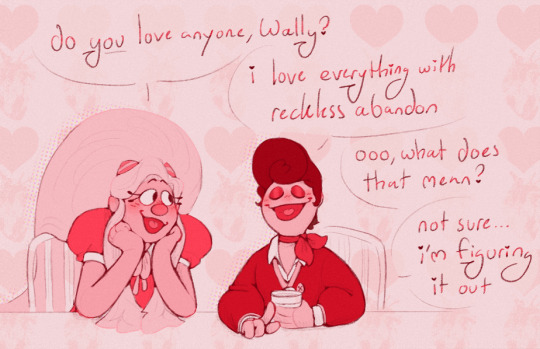
a very pink conversation
#'loving everything with reckless abandon' aka Zest For Life#we should all stay zesty yk yk#attempting to play with lining and single hue palettes#starting with pink bc its The Best Fucking Color Ever.#if you disagree. well. respectfully youre Wrong <3#i want my art to be... Softer...#cozy perhaps. but also dynamic. Much Practicing Happening Tonight#hopefully some learning as well!#scribble garnish#welcome home#welcome home puppet show#welcome home fanart#wally darling#julie joyful#until otherwise stated/confirmed wally is very aroace to me#to my current understanding he loves everything deeply and without discrimination#or reckless abandon. as said above.#wait no. With reckless abandon. with.
788 notes
·
View notes
Text

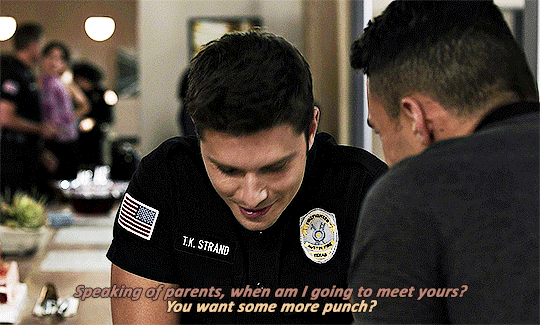
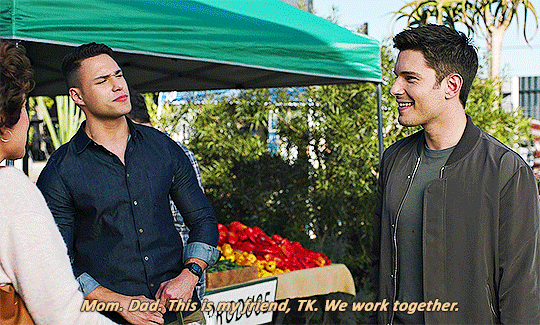
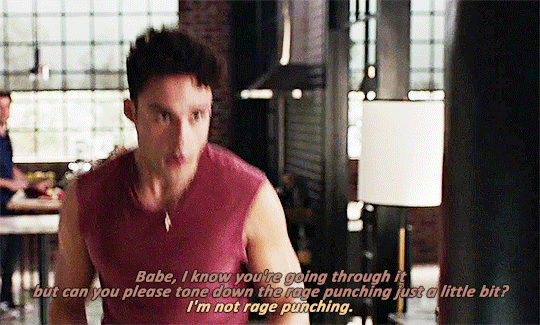
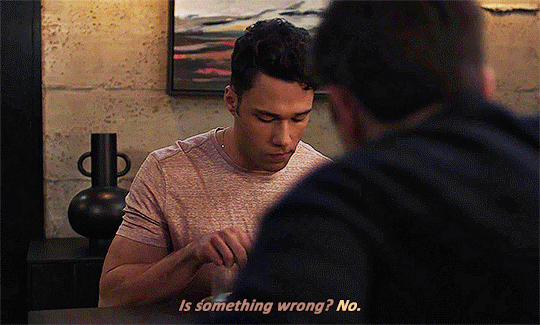
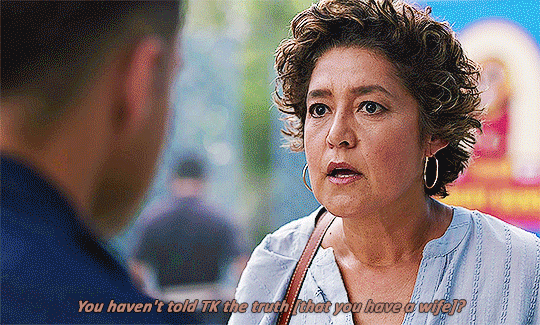

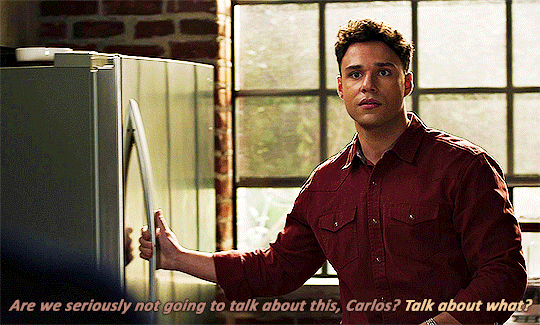
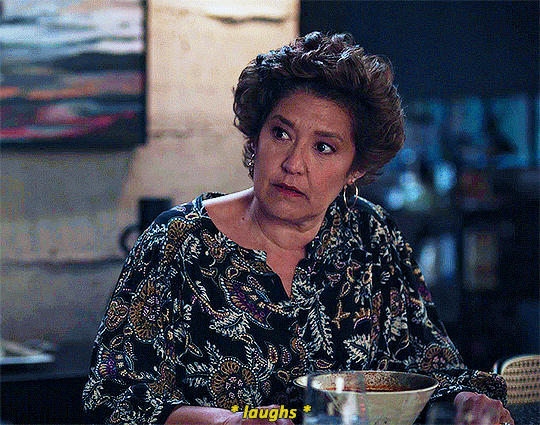
911: Lone Star | Carlos "I Don't Avoid" Reyes
#911 lone star#911lsedit#carlos reyes#tk strand#andrea reyes#full disclosure the andrea laughing gif is out of context. she doesnt laugh in response to that line. even tho she should have 100%#its more-so a representation of ME laughing uncontrollably while making this set#this set is me lovingly dragging his ass because that line was out of control hilarious given *gestures wildly above*#honestly there are probs some other ones I could have included somehow I just couldn't find a way to make them work smoothly#we love one (1) insanely repressed man who avoids all confrontation outside of his work and its carlos reyes#my gifs#911ls parallel#episode: s04e12 swipe left#episode: s02e02 2100°#episode: s02e04 friends with benefits#episode: s03e11 prince albert in a can#episode: s03e13 riddle of the sphynx#episode: s04e01 the new hotness
1K notes
·
View notes
Text
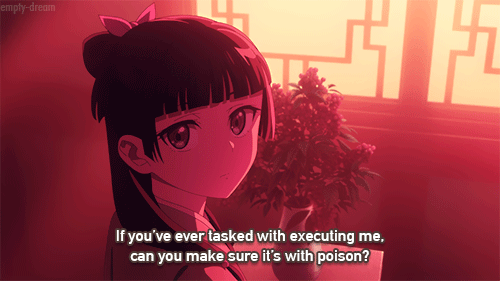

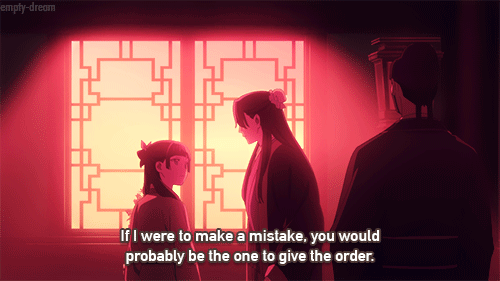
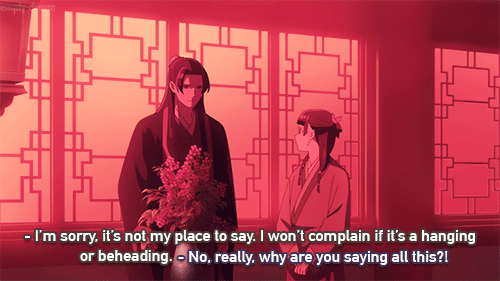

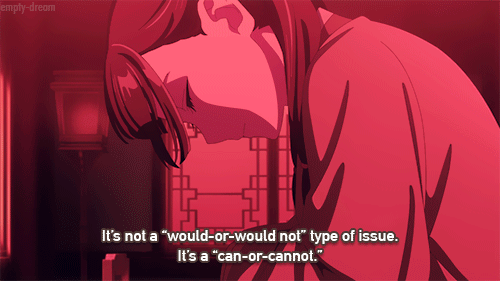
"Jinshi-sama." "What is it?"
#kusuriya no hitorigoto#the apothecary diaries#theapothecarydiariesedit#maomao#jinshi#jinmao#myedit#mygif#this scene is so sad in hindsight#she is right commoners there die just like that#and for all her snarks and indifference#she does adhere the rankings and formalities#if only to ensure her life safety#and here she is requesting to be killed in a way she prefers#a brazen act for a commoner#for a sec shes comfortable enough to ask that to Jinshi#then quickly withdraws it for fear of stepping the line#then on the other hand Jinshi is like wtf u saying#then he realizes how far the distance between them really is#and how she still views him far above her own place#and NOT the same as her#im anime only so this is only my theory:#based on what Jinshi says in the beginning of 2nd cour#that he does what he does now so that he can make his own choices#her words and that its possible that he would have to execute her#that should feel like a harsh reality slap to his face#AARGH I LOVE COMPLICATED RELATIONSHIP LIKE THIS
352 notes
·
View notes